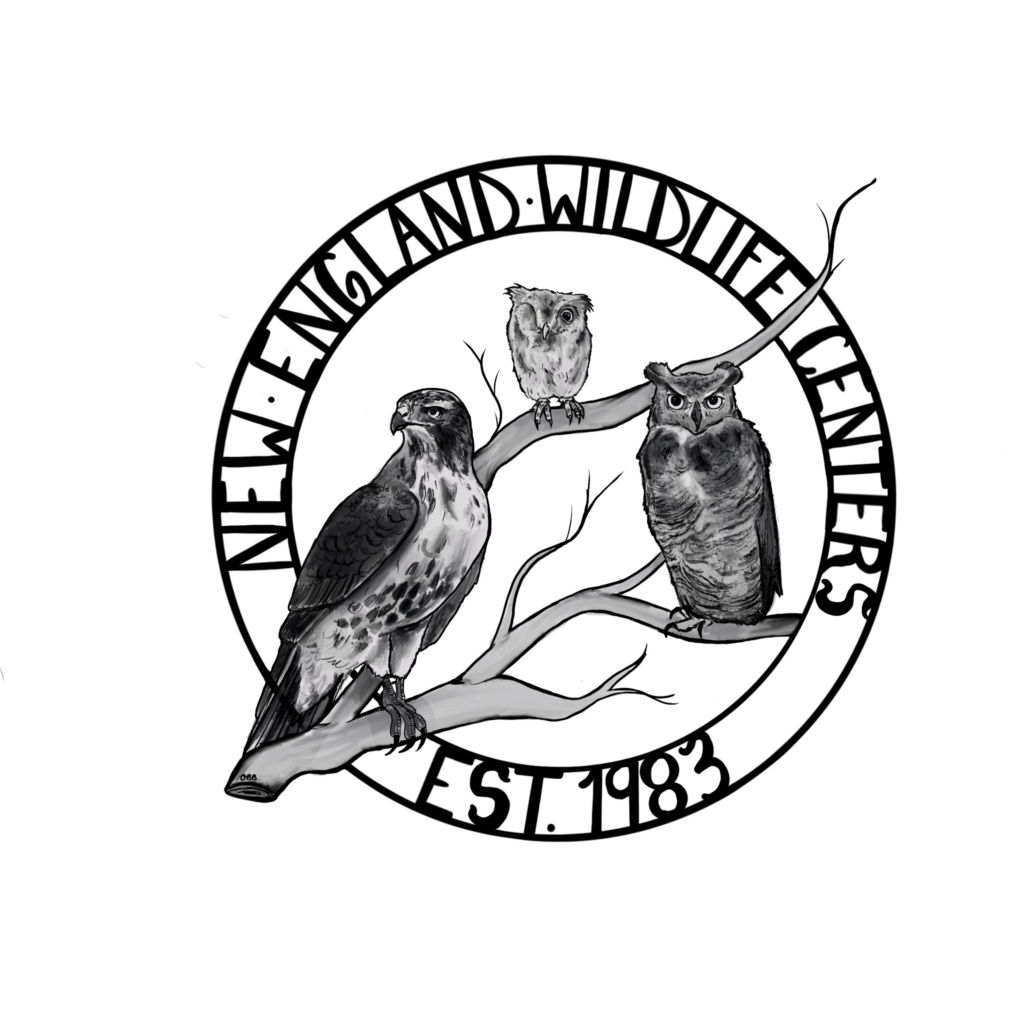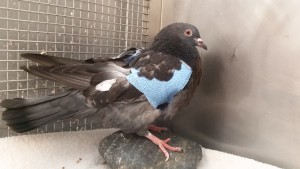This is an injured Rock Dove currently being treated at New England Wildlife Center. He was brought into NEWC during the first days of October. Also known as Pigeons, these highly adaptive birds have made homes all across Europe, South Asia and North America. This particular Rock Dove was found weak and unable to fly on the side of a road in Newton, MA. After being admitted to our Hospital, he was given fluids and nutritional support while receiving additional diagnostics. After a set of X-rays he was diagnosed with a severely displaced proximal coracoid fracture. Coracoid fractures in birds are normally caused by flying accidents or predator attacks. To treat this injury he was placed in a figure-8 wing wrap. This wrap aims to immobilize and align the injured bones, allowing them to heal correctly. Normally it takes 4 to 6 weeks to mend fractures of this kind. This immobility is beneficial for the bone, but can cause tightness in the muscles and ligaments needed for flight. To this end he receives physiotherapy to keep his wings and legs stretched and in good shape. As his bone heals he will continue to rest and receive nutritional support. His prognosis is good and we expect to be able to release him soon.
Rock Doves are intelligent. They have been known to pass the Mirror Self-Recognition (MSR) Test, developed by psychologist Gordon Gallup Jr., which tests the participant’s ability to recognize themselves in a mirror. This test has only been passed by a few higher intelligence species, including elephants, dolphins, chimpanzees, and bonobos. Human babies normally do not pass this test until they are roughly a year and a half years old.


